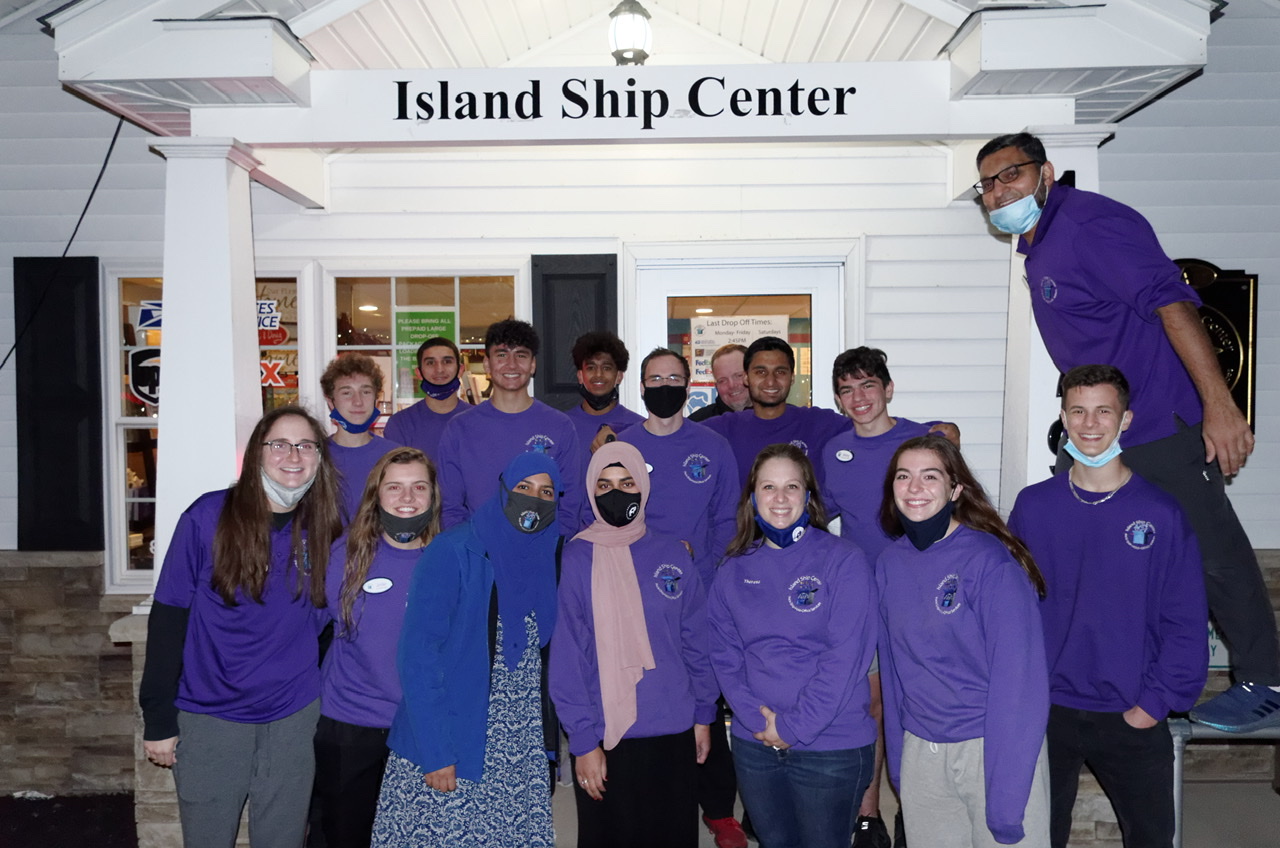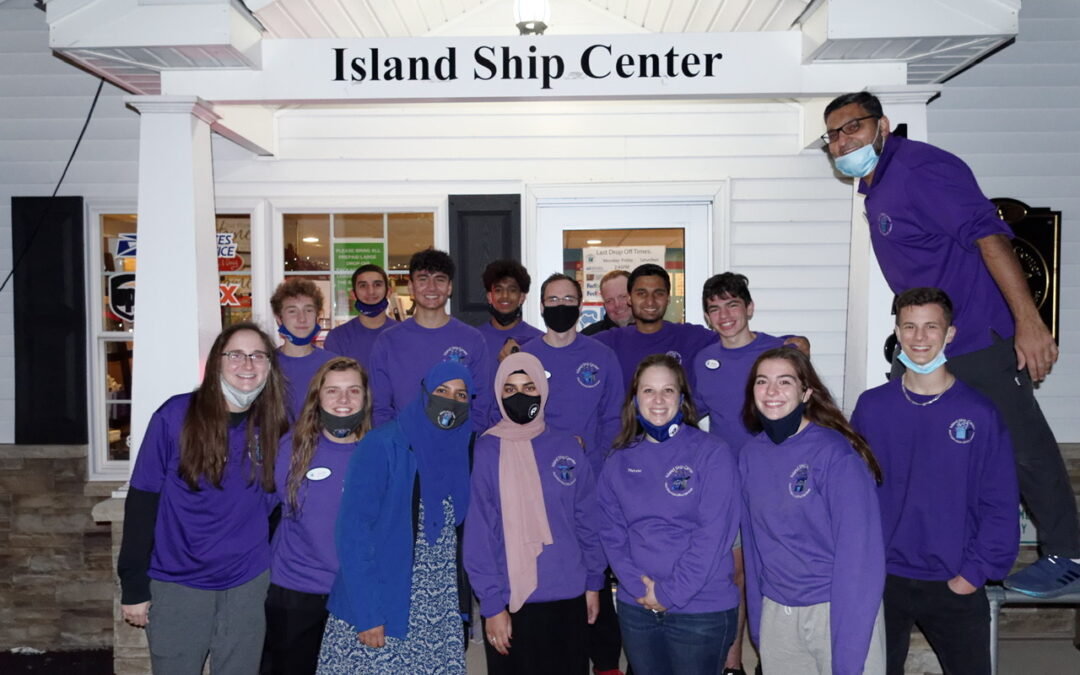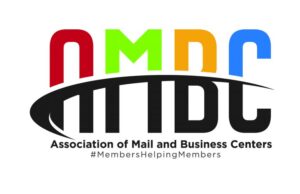Our dear friend Larry Austin interviewed us this week and wrote an article about our business during the past six months after Anthony, one of our team members, filmed a YouTube video for our YouTube channel. Thank you to Larry and Anthony for their efforts.

‘Service, Service, Service’
In a new video posted by the Island Ship Center, co-owners Seema and Fahim Mojawalla explain that the business isn’t just about shipping packages from point A to point B, their business is about service.
A video interview with Anthony Amato called “Working Through the Pandemic” describes core concepts in dealing with adversity. The team at the Island Ship Center responded at the beginning of the COVID-19 pandemic in March and has flourished not by looking out for themselves, but by going into service to others.
Check out the video at https://www.youtube.com/watch?v=jQLHyVU-yck&t=79s.
“We had no one coming through that door,” Fahim said of the period in March when the lockdown began. “So what do we do? We start making phone calls.”
Not sales calls, mind you, but service calls. Seema said, “The downtime that we had, we just called up and checked up on each and every one of our senior guests to make sure, are they healthy? Are they safe? Is there anything that they need? Do they need any groceries?”
Fahim said, “Yeah, we were willing to drive groceries to their house.”
Seema describes in the video how she and Fahim checked up on one of the Island Ship Center guests. “We just said, ‘Hey, how are you doing? Do you need anything?’ And she said, ‘Well, actually I need toilet paper. I can’t get it anywhere.'”
Fahim responded immediately with a delivery. “And I dropped it off at her house. And several of our guests actually called,” he said. “They called crying. They were in tears of joy.”
They told Fahim they were blessed in the community.
“And really, that’s the biggest marketing secret. Our marketing secret is that four-letter word: C-A-R-E. We truly care. We care for our guests, we care for our community, we care specifically for our people and our team members in our ISC family. And we deeply care for each other, and that whole care model translates into this business that has evolved over 15 years.”
Like a lot of businesses, the pandemic took an initial toll. Seema said the ISC took a hit losing a significant chunk of business during that time.
“We lost all of our retail for eight months. There was no printing business at all,” Seema said. The company lost a $10,000-plus contract from one vendor, plus all the work associated with sporting events, concerts, and weddings.
“Everything got canceled,” she said.
“And we could have focused on that,” Fahim explained. “We could have focused on that during the initial stages of when the pandemic hit in terms of being numb or being psychologically handicapped like, ‘Oh, woe is me’ or whatever. But you know, as we learn from the people that we follow, the three big cancers of the brain — complain, compare, and criticize. We don’t want to go into that negative trap.”
Fahim added that the business must go out into the community it serves. He said, “If the business doesn’t come to you, go out into the community, knock on doors, and say, “Our business is here. How can my business’s services be of service to you? Is there anything that we can do to make your life better? And in our capacity, can we think win-win and be proactive about it?”
As they have in the 15 years of doing business, the Mojawallas asked a basic question when faced with a challenge.
“We said, What do we do best? What do we do best? Right? Post 9/11? What do we do best in the recession? What do we do best when we were starting this business? What do we do best in our marriage, in our initial stages, as parents? We did best by serving others. How can we find the time, the energy, and the wherewithal to serve others during this trying time? And I think that really got us through. We were able to serve because it’s who we are. And that’s our business. Our business is in the business of service. Even now, as we’re training our young sales apprentice, Jackson, we tell him that it’s all about empathy, collaboration, and relationships. How can we serve the community? How can we serve them in the needs that they have?
“That’s how we’ve grown up until now, that we listen to what our guests need. And then we apply that and we make that into a service because that’s what’s needed by the community,” Seema added.
The results have followed. Cross-border shipping has expanded and the company has grown from four to 16 people. In June, the relationships that the company had built in the previous four years with Canadian companies, and through logistics and fulfillment, paid off. Fahim called it “a godsend.”
“I cannot for the life of me believe. It just seems like a whole dream,” he added. “But at the end, it’s service, service, service. It’s relationships, relationships, relationships. It’s empathy, empathy, empathy. And it’s finding and focusing on creating value for your people.”
The experience during the pandemic has illustrated a philosophy the Island Ship Center lives by: “The best way to get what you want is to help others get what they want,” Fahim said.
Every small business, no matter what industry, can learn from this and can pivot and diversify even in a pandemic.
Seema said, “Help others and listen to what they need. Open your eyes and open your ears and just listen.”




